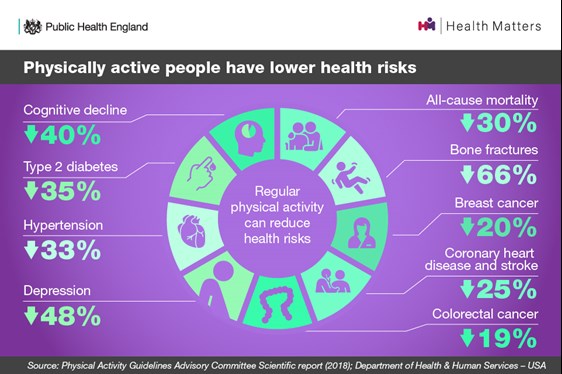Statement about physical activity
Regular physical activity is proven to help prevent and manage noncommunicable diseases (NCDs) such as heart disease, stroke, diabetes and several cancers. It also helps prevent hypertension, maintain healthy body weight and can improve mental health, quality of life and well-being. There is also emerging evidence from epidemiological studies that shows that leading a physically active lifestyle reduces the incidence of communicable diseases (bacterial and viral infections) and that that immune competency is enhanced by regular exercise.
Physical activity refers to all movement. Popular ways to be active include walking, cycling, wheeling, sports, active recreation and play, and can be done at any level of skill and for enjoyment by everybody.
Increased levels of physical inactivity have negative impacts on health systems, the environment, economic development, community well-being and quality of life. It is estimated that physical inactivity costs the UK approximately £7.4 billion per year and is responsible for 1 in 6 deaths.

